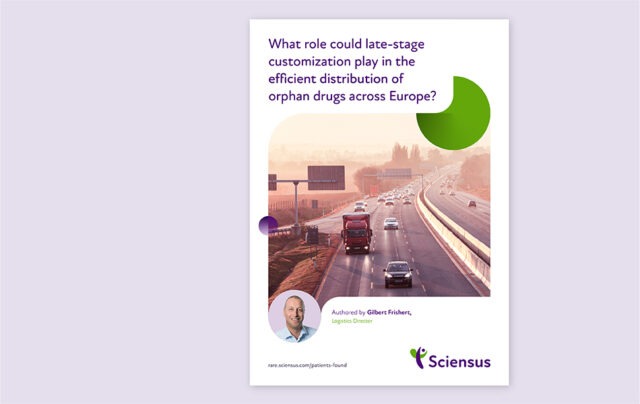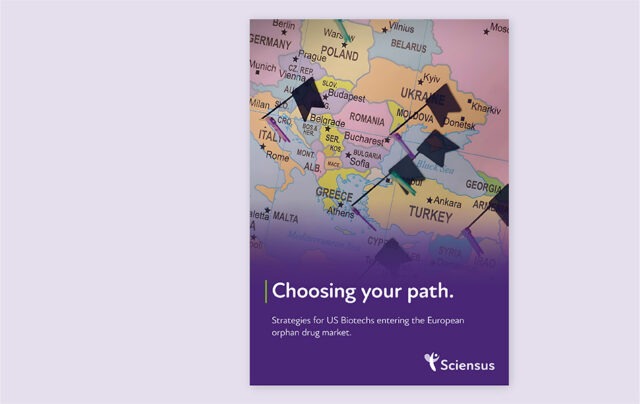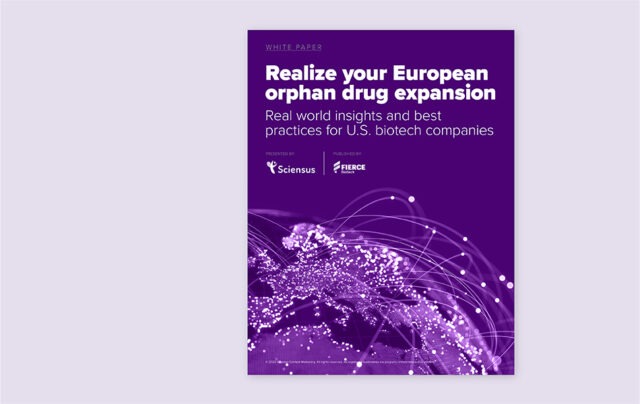
Orphan drugs: How to avoid costly stock losses in Europe
With orphan drugs typically being high value, the potential risk of stock losses should be a top concern for biotechs looking to launch their products into new markets. Developing an international supply chain carries an increased risk of losses which can impact product availability and profitability. With over 30 years of experience in medical supply chain management across the EU, Sciensus has developed solutions to mitigate against obstacles. Here we explore the challenge in more detail.
Estimates suggest that there could be around 300 million people worldwide living with a rare disease. A disease is classed as rare when it affects fewer than one in 2,000 people. New orphan drugs can provide rare disease patients with hope for a better quality of life when all existing treatment options have failed.
For many biotechs, however, the complexity of launching orphan drugs into new markets and the high value/low volume nature of orphan drug supply can mean it’s difficult to make the costs and efforts add up. In Europe, for example, biotechs must navigate the varied regulations and requirements of 27 different countries. Without local expertise and strong relationships with logistics providers and pharmacies, the risk of costly stock losses when expanding into Europe is a serious consideration.

How can stock losses happen in your international supply chain?
The low volume nature of orphan drug supply means that most companies maintain a carefully balanced inventory, and so even the smallest stock loss can cause supply issues and delays for patients in receiving their vital medications. Of course, these drugs are also usually high value which means any losses can be extremely costly for pharma companies.
There are three main causes of stock losses:
- Incorrect storage and transit conditions, such as temperature
- Delivery errors and loss in transit
- Damaged stock
International biotechs launching into Europe for the first time must be aware of these risks when planning their supply chain and negotiating with local storage and logistics suppliers.
What can be done to mitigate potential losses?
Thankfully, good clinical supply chain management can help minimise waste and ensure the safe and timely delivery of orphan drugs. To succeed, all parts of the supply chain must work in harmony across shipping, storage, packaging, distribution, and cash collection. Understanding the entire logistical process of importing drugs, storing them in a central location, and ensuring safe and rapid delivery is crucial.
For example, while many third-party logistics providers offer cold chain transportation solutions, the low volume typical of orphan drug supply often complicates the negotiation of customised storage and delivery arrangements. Third-party logistics companies delivering orphan drugs simply don’t have sufficient ‘skin in the game’ to go above and beyond to ensure safe and timely delivery every single time. This can lead to delays and issues, with stock ruined and patients unable to receive the treatment they desperately need.
For this reason, many biotechs opt to partner with local specialists, such as Sciensus, who can coordinate their entire European clinical supply chain.

Sciensus’ fully managed service is specifically designed for loss-free orphan drug distribution
Beyond handling physical logistics, at Sciensus we offer a fully managed service designed to address the unique challenges of introducing and supplying orphan drugs across Europe. This comprehensive support covers everything from regulatory compliance and import licensing to cash collection, customer service, order processing, and safe storage and distribution.
With extensive experience in collaborating with US biotech companies to expand access to orphan medications, our expert team has designed a fully flexible approach and our facilities have been created especially for low volume. From our medical warehouse in the Netherlands, we offer full inventory management options, including late-stage customisation which enables us to prepare and ship very precise amounts of stock with all the correct local information included. This has enabled us to supply medication for as few as 10 patients in one country.
Crucially, what sets us apart from other providers is our purchase model where we buy stock from our clients and import it to our warehouse on our import license – eliminating their financial risk and taking it on ourselves. In this way, clients can rest assured that we’ll do whatever it takes to get their products to the right place, safely and on time, every time. In 2023 alone, we made more than 23,000 deliveries with 99.4% arriving as scheduled and just 0.02% lost stock.
Tony Brackner, Interim Managing Director, Rare



